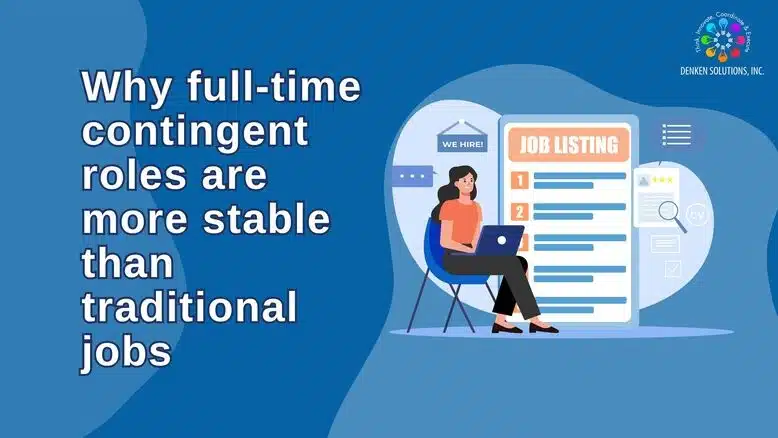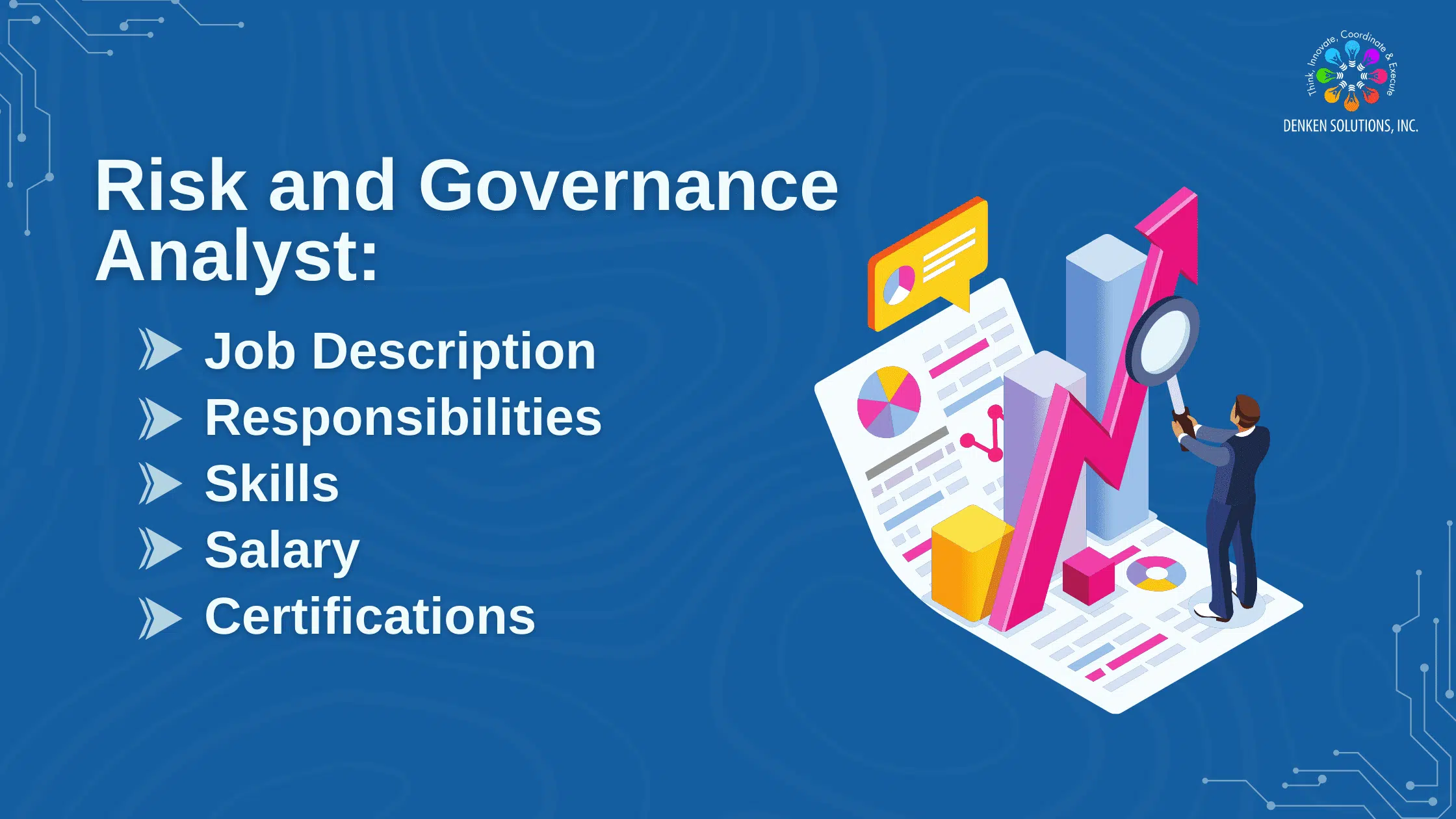Losing a job can be extremely stressful, unexpected, and emotionally draining. However, it can also create space for new career paths that offer increased flexibility, growth, and control. In the current job market, contingent work is becoming one of the most valuable options for professionals navigating life after a layoff. Instead of waiting for the next full-time opportunity, contingent roles will enable you to stay active in the workforce, sharpen your skills, and gain exposure to diverse projects and industries.
This way of thinking will give you the freedom to choose assignments that match your strengths, explore new areas, and build a strong professional portfolio, often with better work-life balance and a higher earning potential. Whether you are aiming to transition into a new field, rebuild confidence, or simply stay financially stable, contingent work can assist you in moving forward quickly and strategically.
In this blog, we dive deeper into why contingent work is an empowering next step after a layoff and how it can open doors to long-term career opportunities.
What is contingent work?
Contingent work refers to employment arrangements where individuals are hired on a temporary, project-based, or contract basis rather than as full-time employees. Instead of committing to long-term roles, contingent workers engage in assignments that match their skills, career goals, and availability. These roles range from short-term projects and contract-based positions to freelance work and consulting engagements.
In the contingent work setup, workers have the flexibility to choose the type of work they want to do, the industries they wish to explore, and the duration of every assignment. Companies take advantage of contingent workers by filling skills gaps quickly, scaling teams on demand, and accessing specialized expertise without any long-term commitments.
Contingent work is becoming an increasingly sought-after option in the current job market, driven by the rise of remote work, digital collaboration tools, and the growing need for flexible staffing solutions. For professionals recovering from a layoff or looking to diversify their career path, contingent work will offer a practical and empowering way to stay active, earn consistently, and build valuable experience across multiple roles.
Why is contingent work a strong choice after a layoff?
Prior to a layoff, multiple professionals face uncertainty about what the future holds. Contingent work offers a stable and empowering path forward. This allows individuals to stay active in the workforce while exploring new opportunities. Instead of waiting for a full-time role, contingent work will provide you the flexibility, speed, and earning potential required to rebuild your career with confidence.
1. Quick access to new opportunities:
Contingent roles usually have short hiring cycles. This allows you to get back to work quickly. Companies often hire contract talent on an urgent basis, which means you can secure assignments without lengthy interview processes or delays.
2. Source of income:
Instead of waiting for months for a traditional full-time role, contingent work enables you to start earning immediately. Even short-term projects assist you in staying financially compliant while also planning your next long-term move.
3. Flexible work style to choose from:
You can choose among projects that align with your skills, interests, and schedules. Whether you wish to work remotely, do part-time assignments, or project-based roles, contingent work puts you in control of your time and workload.
4. Ability to build new skills:
Working across multiple clients, industries, and team will expose you to new tools, technologies, and responsibilities. This continuous learning will strengthen your resume and boost your value in the job market.
5. Avoid resume gaps in your resume:
Taking on contract assignments will ensure you maintain professional continuity. You tend to stay productive, get new experiences, and keep your profile active. All of which is important when applying for future roles.
6. High earning potential for special skills:
Various contingent roles pay competitive rates, especially in technical, healthcare, and creative fields. Since companies pay for focused expertise, specialists often earn more every hour or per project than in traditional roles.
7. Opens up full-time opportunities:
Contingent work frequently acts as a stepping stone for long-term employment. Once strong contractors prove their worth, many businesses turn them into full-time employees.
How does contingent work help in rebuilding confidence after a layoff?
A layoff could affect your confidence, even in situations when it has nothing to do with your performance. Contingent work provides an empowering and practical way to regain momentum, regain faith, and take control of your career again. By entering the workforce via flexible, skill-based assignments, you get to witness progress quickly, and this progress directly fuels your confidence.
1. Assists you in regaining professional momentum:
One of the toughest parts of layoffs is the unexpected pause in your everyday routine. Contingent roles enable you to get back into action quickly. Completing tasks, meeting deadlines, and contributing to meaningful work will help restore your purpose.
2. Allows you to use skills immediately:
Instead of waiting for months for a full-time role, contingent work enables you to apply your expertise immediately. Seeing your skills make an impact reinforces your ability and reminds you of the value you offer to the team.
3. Encourages constant learning and growth:
Contingent assignments expose you to new processes, tools, and industries. Every project helps in sharpening your abilities, expanding your knowledge, and building confidence through real progress.
4. Gives you authority over your professional path:
It’s normal to feel helpless after a layoff. By allowing you to choose what you work on, who you work with, and how you manage your time, contingent employment changes that narrative. Naturally, this control aids in regaining confidence.
5. Assists in rebuilding your career identity:
You are reminded of your talents, flexibility, and worth when you collaborate with other teams and clients. Your professional identity is strengthened over time by this varied experience, which gives you the confidence to take on new opportunities.
Who is the best fit for contingent work?
Contingent work is not just limited to one industry or skill set; it has become a powerful career path for professionals across multiple domains. Irrespective of whether you are transitioning prior to a layoff or exploring new opportunities, or finding more flexibility, certain types of professionals benefit especially well from contingent roles. Here are the groups best suited for contingent work:
1. IT professionals and tech:
QA testers, developers, cloud engineers, data analysts, cyber security specialists, and IT support experts thrive in contingent roles. The tech industry usually hires for short-term projects, contract-based development work, and product launches.
2. Marketing and creative professionals:
Content writers, graphic designers, video editors, social media managers, and brand strategists usually find consistent opportunities in the gig market. Their work naturally aligns with flexible, output-driven assignments.
3. Finance, HR, and administrative roles:
It is simple for accountants, payroll specialists, HR coordinators, recruiters, administrative assistants, and project coordinators to move into contingent roles, helping businesses during busy times, changes, or stages of growth.
How does Denken Solutions support contingent workers?
Denken Solutions plays an important role in assisting professionals in transitioning smoothly into contingent work by connecting them with the right opportunities and providing complete support throughout their assignments. Denken makes sure you have the tools, support, and security you need to thrive in the contingent workforce, whether you’ve recently been laid off or are looking into flexible work choices.
1. Availability of verified and high-quality job opportunities
Denken Solutions works closely with leading businesses in the administrative, engineering, healthcare, and IT sectors. This means contingent workers receive access to authentic, vetted opportunities that fit their talents, expertise, and career goals, without constant job searching.
2. Simplified onboarding and simple documentation
By helping with the necessary paperwork, background checks, and job-specific needs, we streamline the onboarding process. Our team makes sure everything goes smoothly so you can concentrate on the task rather than paperwork.
3. Payroll support that is clear and dependable
Uncertain pay cycles or delayed payments are common problems for contingent labor. By providing prompt, accurate, and transparent payroll processing, Denken resolves these problems and guarantees that you are paid on time for each hour worked.
4. Dedicated assistance during the task
Our staff is always on hand to answer inquiries about timesheets, project requirements, HR issues, or next actions during your contract. We help you every step of the way, so you never have to navigate a contract role alone.
5. Possibilities for career advancement and skill development
You are exposed to new tools, technologies, and procedures when you work with several clients. By putting you in touch with projects that expand your skill set and lead to long-term career chances, Denken helps you develop a stronger professional profile.
6. Possible routes to full-time positions
There is a chance that many of our temporary posts will become permanent ones. When full-time chances present themselves, Denken supports you during the transition and assists you in proving your worth.
Conclusion:
After a layoff, contingent work provides a strong route forward by allowing you to rebuild your career, build your abilities, and pursue new opportunities without making long-term commitments. It opens doors to a variety of professions across industries and helps you stay active, earn consistently, and restore confidence. Contingent work provides a strategic career benefit for professionals who want to advance with mobility and purpose, not merely a short-term fix.



